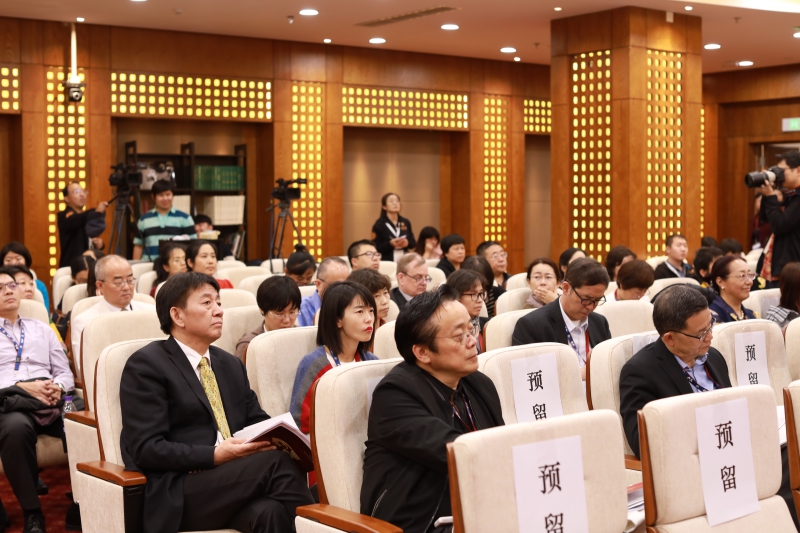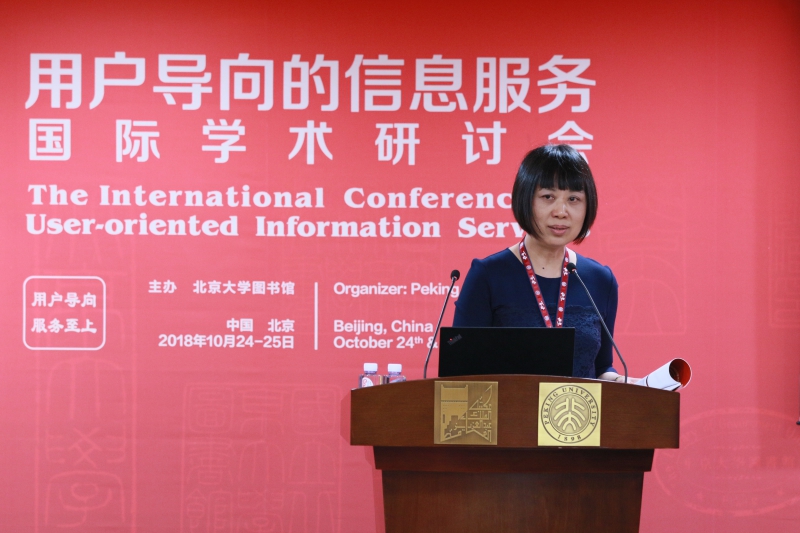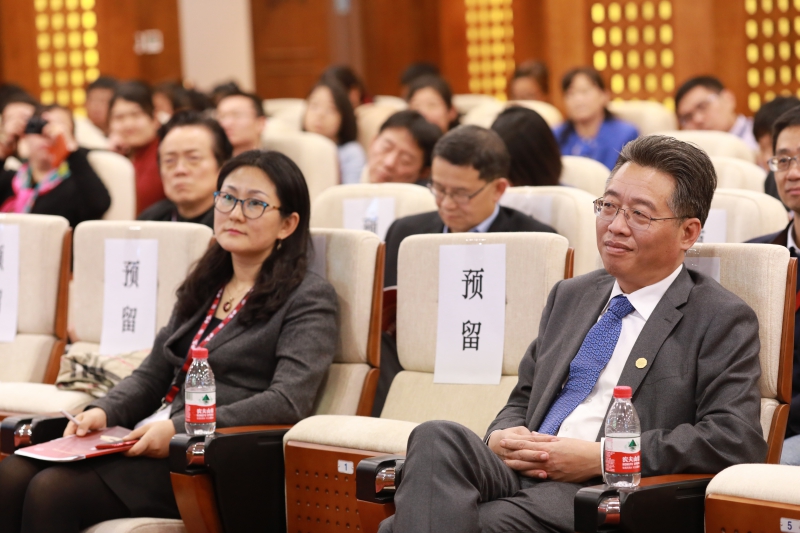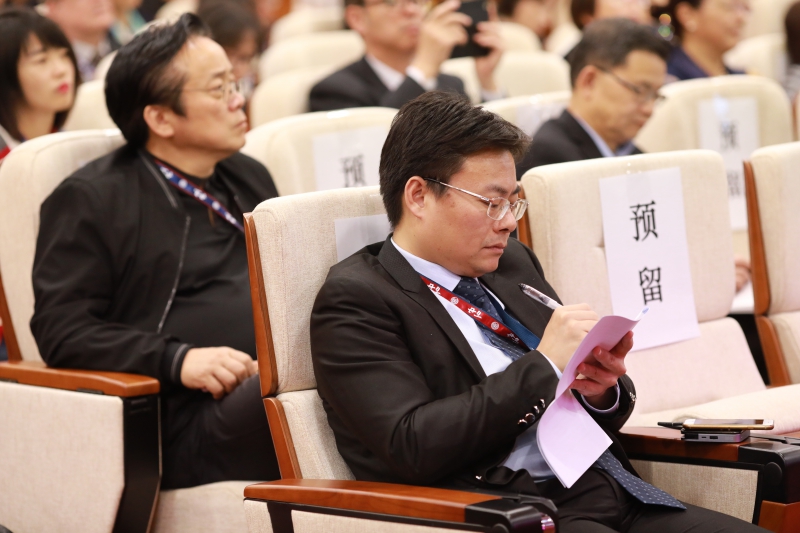Peking University, Oct. 25, 2018: As one of the most important sessions of a series of celebration activities and academic exchanges for the 120th Anniversary of Peking University Library, the 4th International Forum on Cooperation and Sharing of Library Resources for East Asian Studies was held at Peking University Overseas Exchange Center on October 25th, 2018. The forum focused on “East Asian Literature and Digital Humanities—New Roles and New Value as Resource Provider and Service Support,” including five keynote speeches delivered by various professional librarians all over the world and an open discussion on the topic. There were heated discussions and deep exchanges during the session, arousing wide and warm response from those present.

At the very beginning, Cheng Zhangcan, director of Nanjing University Library, addressed a congratulatory speech. He briefly recalled the development of the forum in the past three years and wished a bright future for our libraries.
The forum was hosted by Dai Longji, library director of Macau University of Science and Technology. Five keynote speeches were given by guest speakers. Wu Jianzhong from University of Macau Library gave the first speech. He put forward concepts like “Open Access” and “Beyond Open Access,” stressing the significance of improving data management.

Nie Hua, deputy director of Peking University Library, centered on new vision, new role and new services of library and digital humanities. She posed some challenges and threats faced by digital humanities, introduced PKU Library’s achievements and expressed PKU Library’s determination to improve the function of library in the future.
Peter Zhou, assistant university librarian and director of the C.V. Starr East Asian Library at the University of California, Berkeley, delivered his theme speech of “Digital Humanities and the Librarians: Towards a Sustainable Infrastructure and Operational Platform”. He drew his audience’s attention to the construction of complete digital content life circle. Taking the permanent preservation project of Digital Dunhuang as an example, he emphasized the necessity and importance of eternal data preservation with the help of present business system or crowdsourcing platform etc.
Next, Chen Kuanghua from Taiwan University took the floor, whose speech focused on the research development of digital humanities (DH). He presented a case study based on Taiwan’s publications. It demonstrated how DH was progressing in the rest of the world. He presented his research after giving a brief history of the development of digital archives in Taiwan. Through applying a bibliographic methodology of DH-related scholarly publications in publication similarity analysis and co-authorship analysis, he concluded that DH had fostered collaborations across traditional disciplinary boundaries.
The last speaker before the tea break was Jim Cheng from Columbia University C.V. Starr East Asian Library. He brought the audience’s attention to the trends and challenges of distinguished collection development. He mentioned that Columbia University had just finished the reorganization of its libraries, separating three distinguished collection libraries from the other eighteen libraries. After an introduction to distinguished collections and Inter-university Consortium for Political and Social Research (ICPSR), he added, “our capability to process huge data is still limited, which is a great challenge we should deal with together.”



After the tea break, they had an open discussion hosted by James K.M. Cheng, director of Harvard-Yenching Library. During the session, they shared their ideas about future interlibrary cooperation and insights about the development of library resources, bringing the audience enlightenment and raised their expectations for the 5th forum next year.
Reported by: Ouyang Jie and Shi Jingjing





